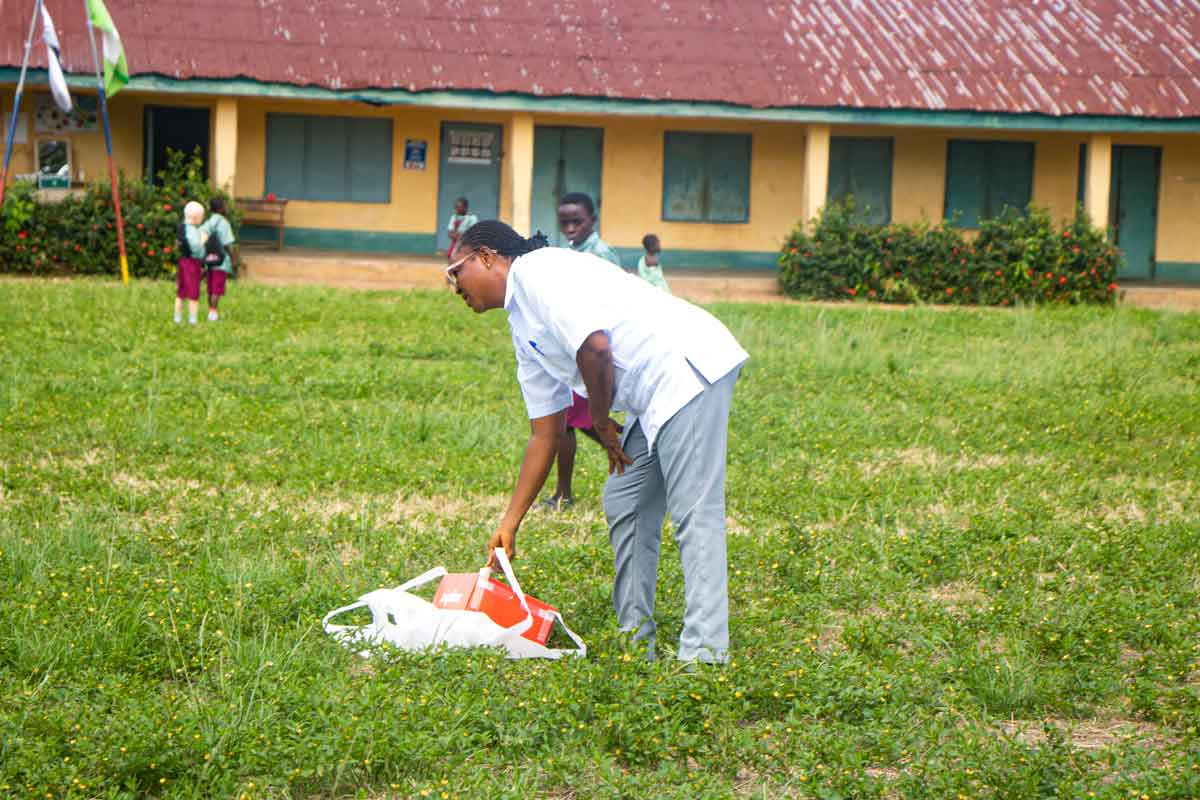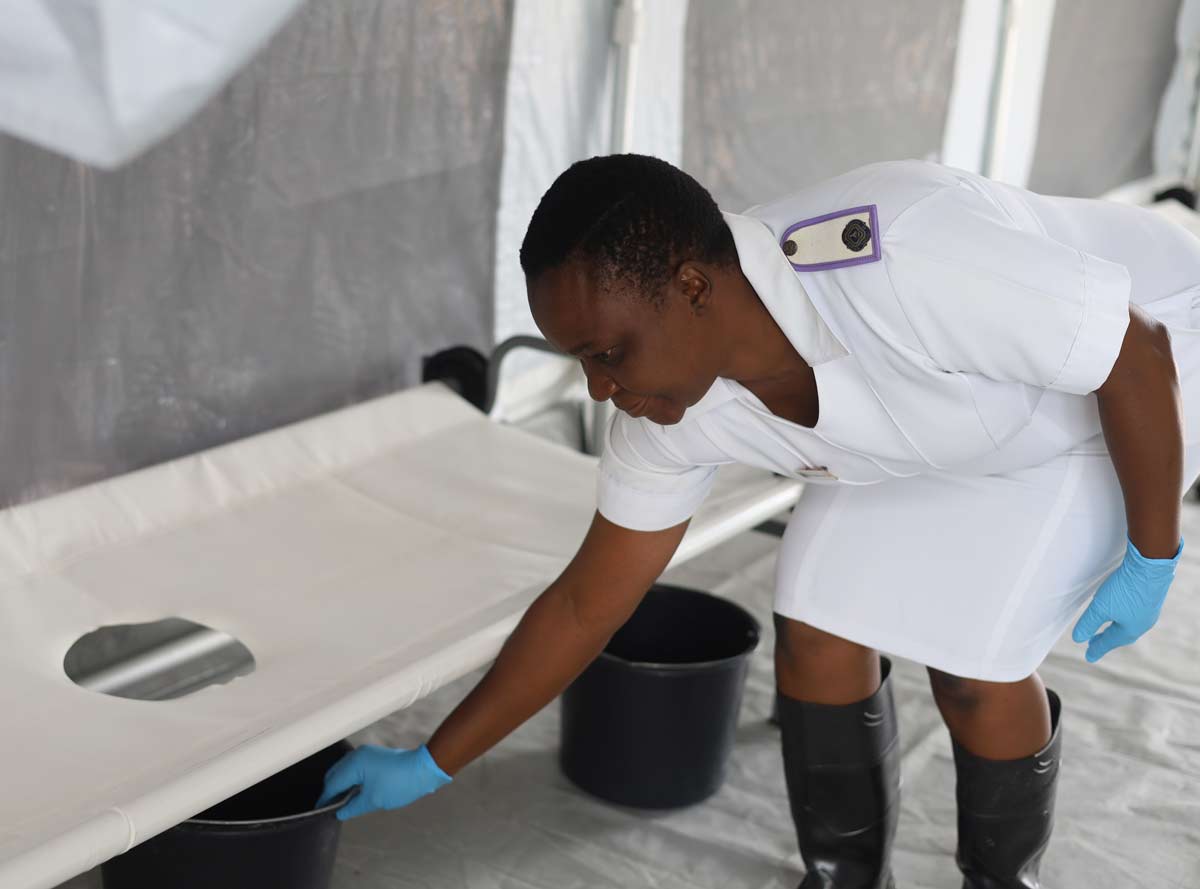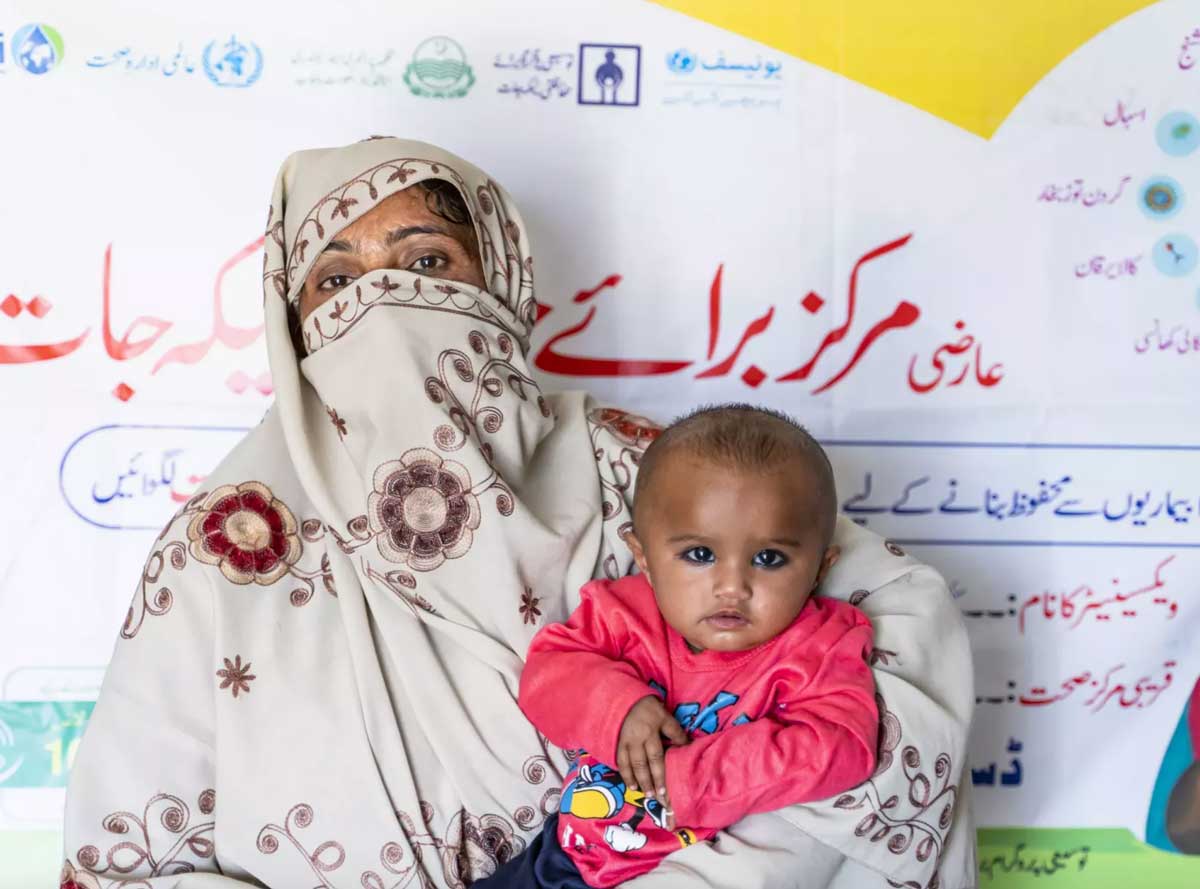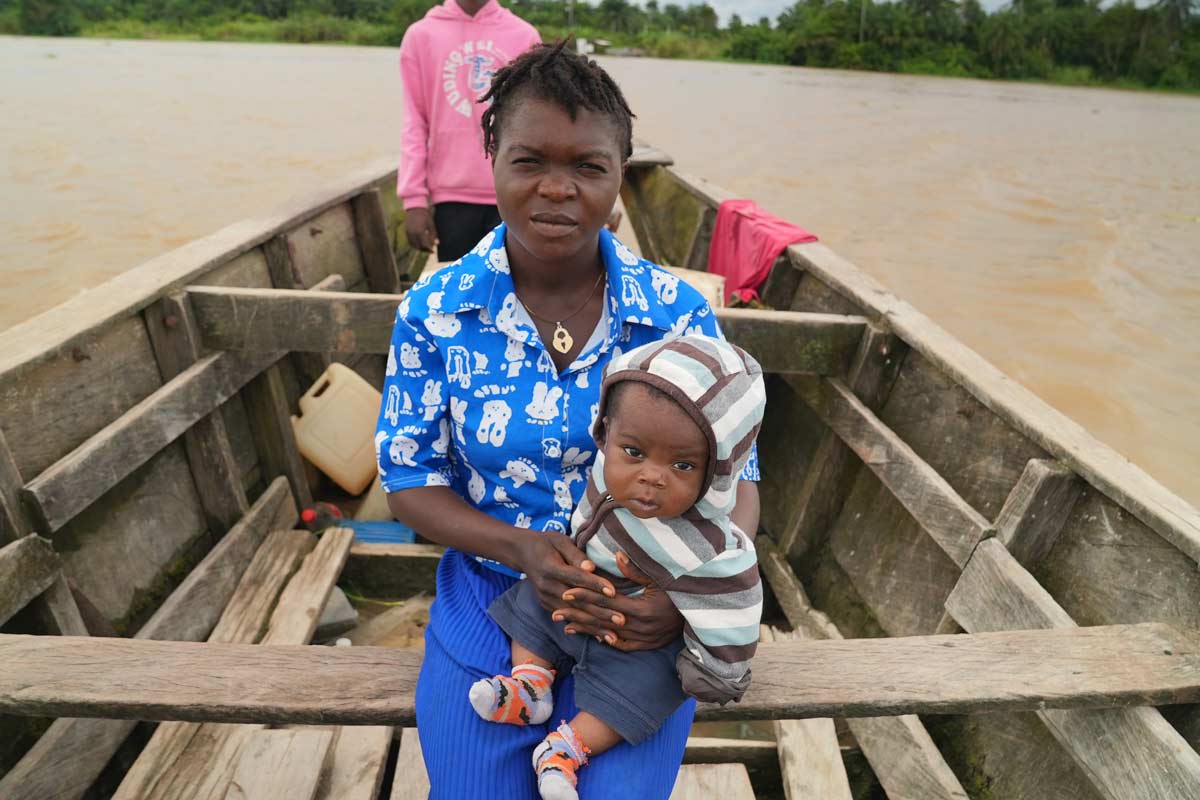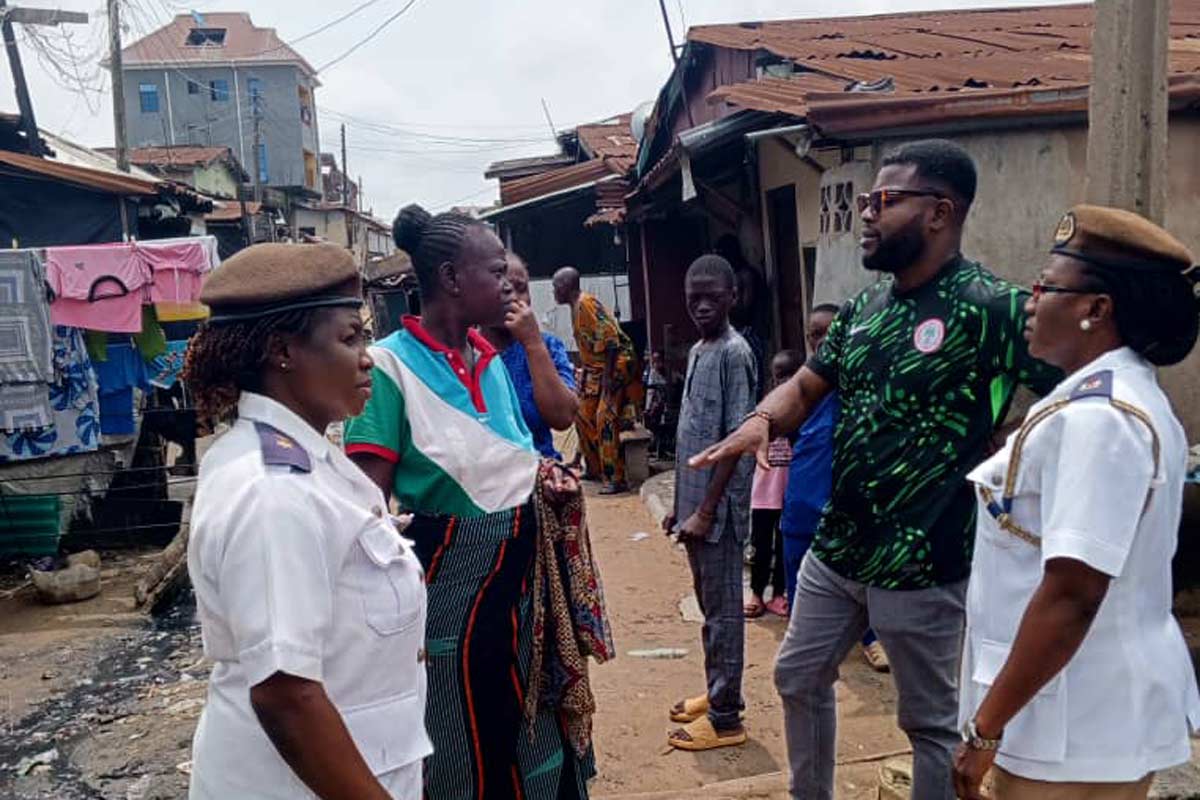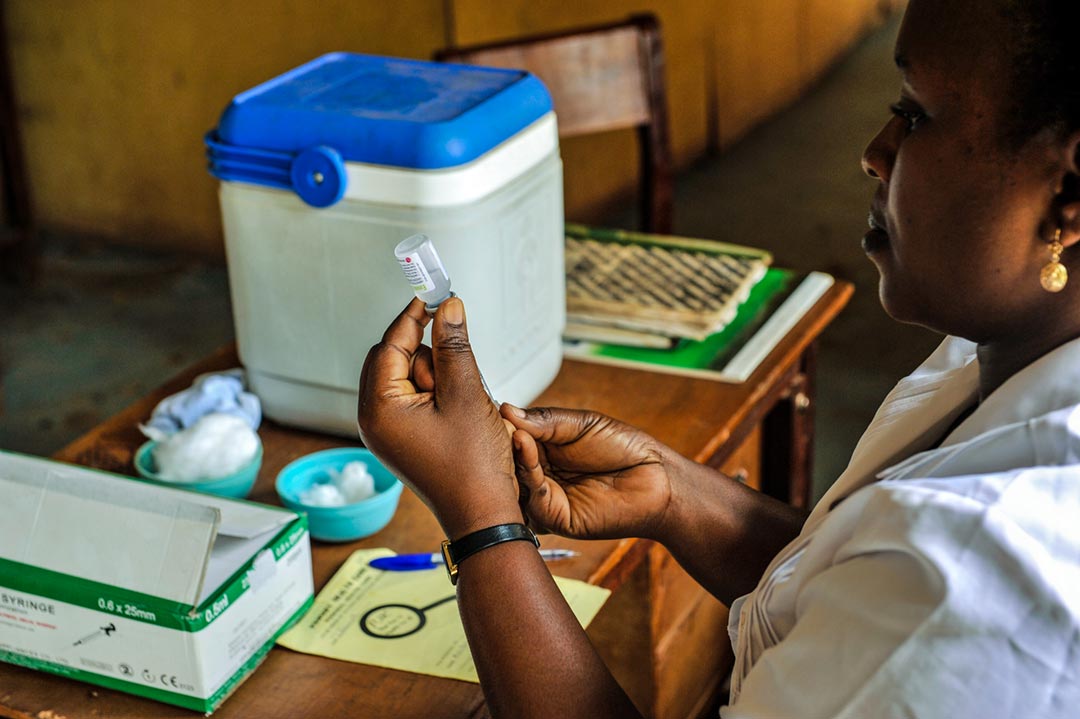Nigerian army wives take the fight to cervical cancer
While their husbands defend their country from security threats in in the country’s north, a group of wives of Nigerian army officers are campaigning for the HPV vaccine, in hopes of definitively routing cervical cancer.
- 30 January 2025
- 6 min read
- by Eric Dumo
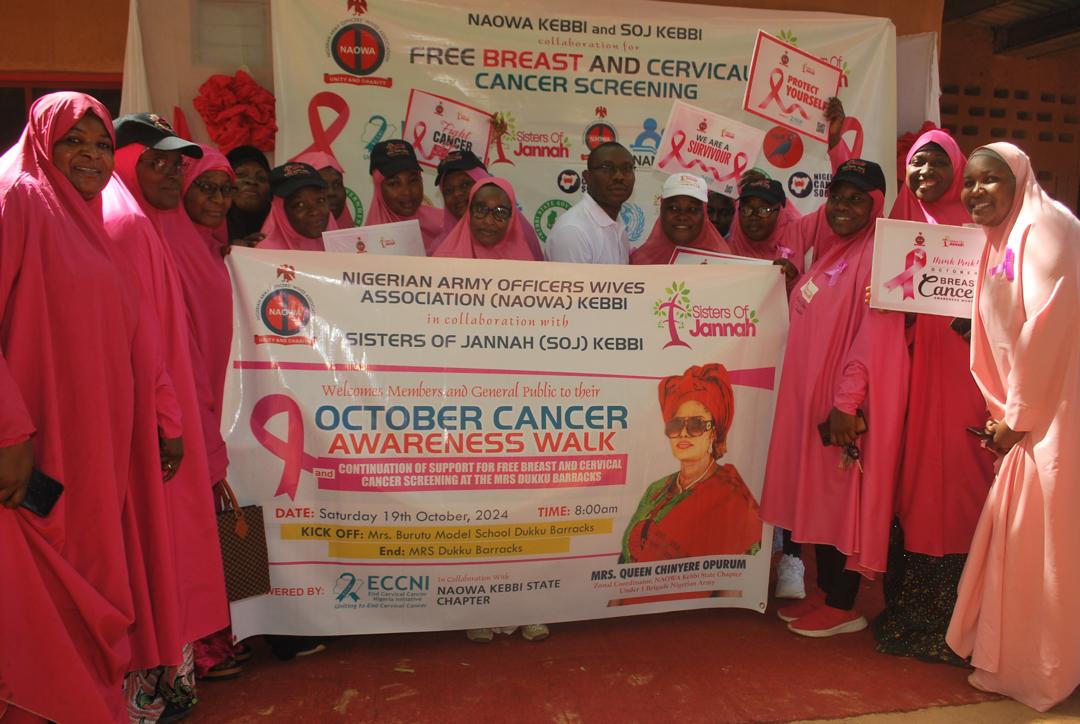
In July last year, Rekiya Dalhatu, aged 12, unexpectedly learned two important things about her own future. The first was that she would one day become a medic in the Nigerian army. The second was that she would not, unlike thousands of women in her mother’s generation, fall victim to cervical cancer.
These revelations arrived more or less together. The secondary school pupil was returning home with her mother, Habibat, one hot afternoon when they ran into members of the Nigerian Army Officers’ Wives Association (NAOWA), a few metres from 1 Battalion Dukku Barracks in Birnin Kebbi. The officers’ wives were accompanied by impressively attired military doctors and nurses. Dalhatu’s attention was caught—the decision regarding her vocation was quickly made.
Dalhatu and Habibat stopped and spoke to the military envoys. It was the first time they were hearing of cervical cancer, the second-most frequent cancer among Nigerian women. Flyers were pressed into their hands, questions were asked and answered. A few weeks later, Dalhatu received the cancer-blocking human papillomavirus (HPV) vaccine at a government-established health facility in the city.
A shot at protection
Cervical cancer is estimated to kill nearly 8,000 Nigerian women annually from an estimated 12,075 cases. But because the human papillomavirus causes the vast majority of cases of cervical cancer worldwide, the risk of the disease is all but eliminated by HPV vaccination. Nigeria introduced the HPV vaccine into its routine immunisation schedule in October 2023, making it available, for free, to the next generation of girls.
The Nigerian government, which had provided protection from the sexually transmitted disease to more than 12 million girls aged 9 to 14 by the end of 2024, is working closely with Gavi, the Vaccine Alliance, and other partners to achieve this target.
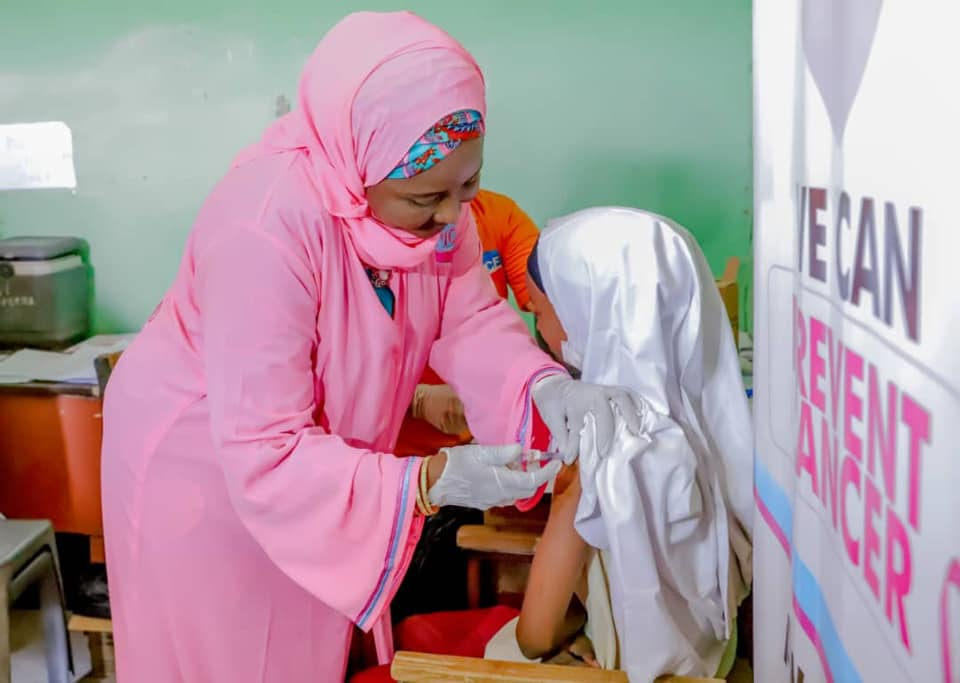
Minister of Health and Social Welfare, Prof Muhammad Ali Pate, during the introduction of the exercise into the country’s routine immunisation programme in 2023, stated that, “The loss of about 8,000 Nigerian women yearly from a disease that is preventable is completely unacceptable.”
Since the vaccine introduction, over 12 million girls have received the HPV vaccine across Nigeria’s 36 states and the Federal Capital Territory in the two phases of the rollout.
Future life-saver
“Apart from the appearance of the military doctors and nurses, I was also thrilled with how gently the wives of the army officers spoke to us about the disease,” Dalhatu told VaccinesWork.
“I decided from that point to be like them when I grow up so that I can save lives in my community.
“My mother wished someone had educated her about cervical cancer before then. She is happy that I have taken the vaccine and want to become a health worker in the military in the future just to save lives,” she added.
“Opened my eyes”
Baiwa, another secondary school pupil who also received vaccination for cervical cancer in Kebbi after her mother was educated about the disease during the campaign by wives of military officers in their community in 2024, has been working towards realising her own dreams, too. Thirteen years old, the girl wishes to study health science at university when she grows older, to help educate people on diseases like cervical cancer.
“I feel happy to have received the vaccination for cervical cancer. Many people in our community didn’t know about this disease until the army officers’ wives conducted an awareness campaign here.
“That encounter not only opened the eyes of our mothers to the dangers of the disease and how it could affect our futures, but also encouraged them to take us for vaccination. Several girls I know in this area have also taken the vaccine,” Baiwa said.
Defensive manoeuvres
To further scale things up in Kebbi, NAOWA, in collaboration with Medicaid Cancer Foundation and the End Cervical Cancer Naija Initiative, has trained over 150 healthcare workers, including military medical personnel, to provide more access for mothers and their daughters to both the education and treatment they might need. In addition, a cancer awareness walk was organised in October 2024 in collaboration with Sisters of Jannah, a Muslim women’s group, to further spread the message.
“As wives of senior army officers, we are happy to see the impact our contributions to the health of Nigerians are making already.”
- Senior official from NAOWA
According to a senior official from NAOWA, who asked not to be named as a result of the military codes adhered to by members, health workers, including army medics, have helped carry the sensitisation message on the disease to remote places in Kebbi and other parts of the north.
“The essence of these awareness campaigns is to reduce the mortality rate associated with the disease by encouraging women and girls to watch out for signs early and let them know the best preventive methods, which are vaccination from an early age.
“As wives of senior army officers, we are happy to see the impact our contributions to the health of Nigerians are making already.
“Many of the health workers who have been trained through our efforts have now carried the message on cervical cancer to every nook and cranny of not only Kebbi but the entire northern region as a whole.
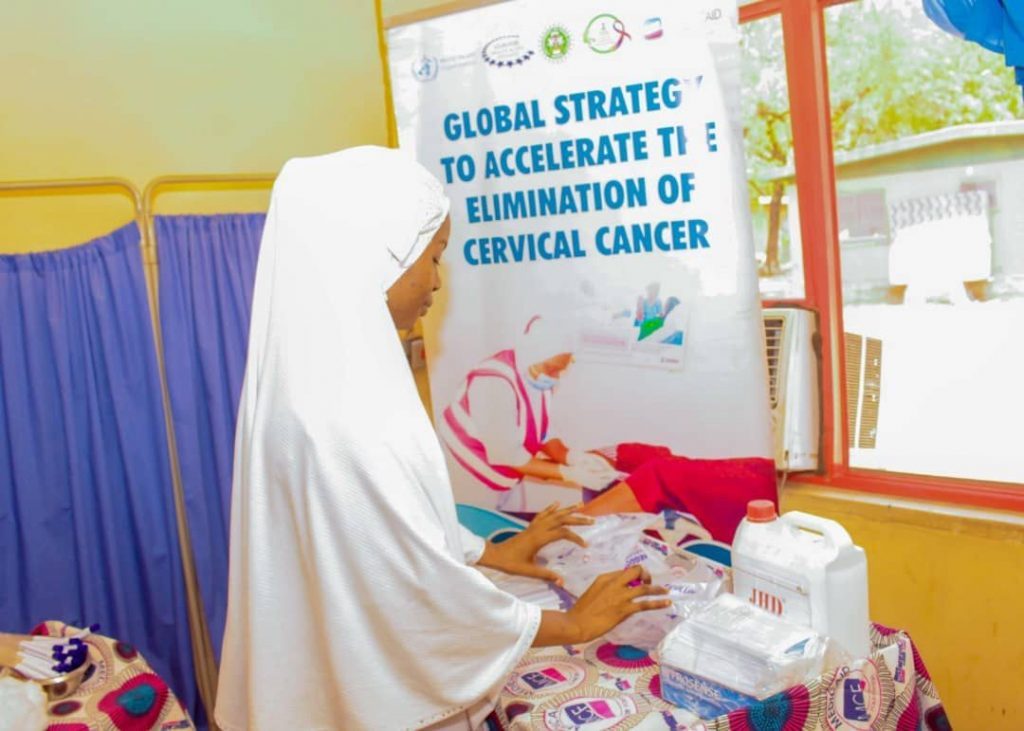
“Think about the number of girls that will be saved from cervical cancer through this intervention alone. We are extremely happy and proud to help in this aspect,” the NAOWA official said.
Habiba Quasim, a health worker in Argungu council area, said she’s seeing an “encouraging” change in both understanding and attitude among local mothers.
Have you read?
“Our effort is gradually changing the perception of women on the safety of the HPV vaccine in Kebbi,” Quasim said, during a chat with VaccinesWork.
“Many of them, as a result of religion and culture, don’t trust the safety of vaccines, but all that is changing because we have been able to prove to mothers how reliable the medicine is.
“In response, the number of girls receiving the jab in my council area has been encouraging. This is all thanks to the training received during NAOWA sensitisation campaigns and health seminars,” she said.
Widespread influence
In Plateau, a state in Nigeria’s northcentral region, other NAOWA campaigns have left their mark. Rachael Bakams, a 45-year-old woman living near Maxwell Khobe Cantonment in Jos, the state capital, told VaccinesWork that it was an encounter with wives of senior army officers during a recent cervical cancer campaign that convinced her to take her 11-year-old daughter, Gladys, for the life-saving jab.
“One morning I was heading to the market to buy some food items, and I ran into some army officers’ wives talking to people about cervical cancer. Immediately I saw them, I picked up interest and decided to find out more about what they were saying.
“By the time I got back home that day, I knew I had to quickly make a decision for my daughter’s future. I consulted with my husband and we both agreed that taking the vaccine was the best for her. I am happy about this decision,” Bakams disclosed.
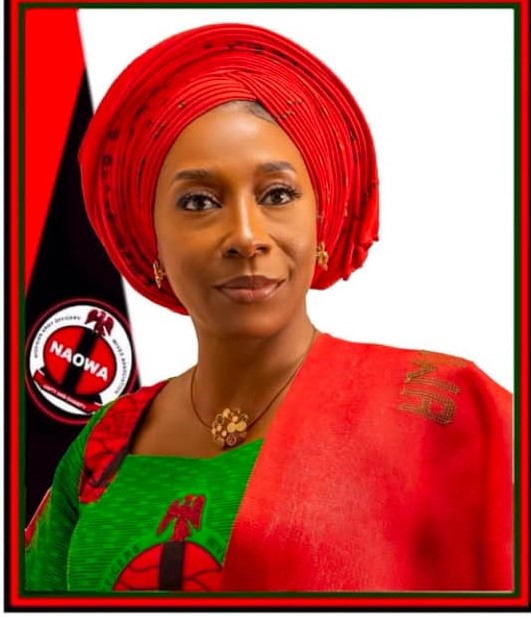
This January in Abuja, Nigeria’s capital, NAOWA took the fight against cervical cancer up a notch by partnering with the Nigerian Medical Association Cancer Prevention Committee to conduct cervical cancer screening for more than 200 women. According to the president of NAOWA, Mernan Femi Oluyede, the move showed the group’s readiness to work together with partners in order to protect more girls and women from the disease.
Apart from Kebbi, Plateau, and Abuja, the nationwide cervical cancer awareness campaign bolstered the Nigerian government’s drive to have more girls take the vaccine.
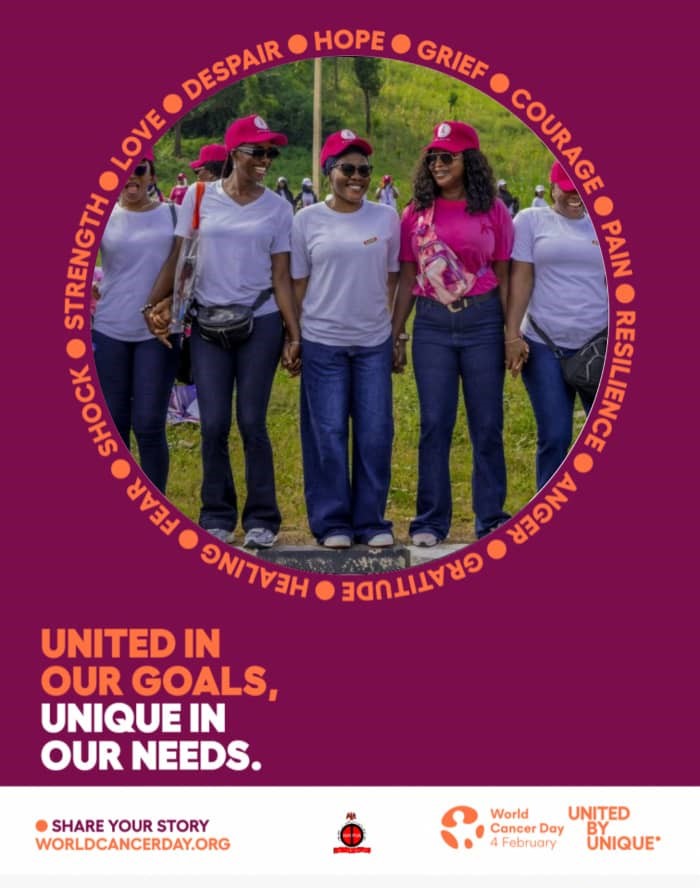
More from Eric Dumo
Recommended for you



